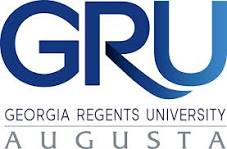Effects of Behavioral Stress Reduction Programs on Blood Pressure in African American Youth
| Status: | Recruiting |
|---|---|
| Conditions: | High Blood Pressure (Hypertension), Peripheral Vascular Disease, Cardiology |
| Therapuetic Areas: | Cardiology / Vascular Diseases |
| Healthy: | No |
| Age Range: | Any |
| Updated: | 11/18/2012 |
| Start Date: | January 2005 |
Stress Reduction: Impact on Blood Pressure in African American Youth
This study will examine the effects of two behavioral stress reduction programs, mindfulness
meditation (MM) and the lifeskills program (LP), and a health education control program
(CTL) on blood pressure.
BACKGROUND:
African Americans (AA) experience a high prevalence and early onset of essential
hypertension (EH), which has been partly attributed to exposure to chronic environmental
stress. AA youth exhibit higher resting blood pressure (BP) than whites. Since BP ranking
tracks from late childhood onward, AA adolescents with high normal BP are at increased risk
for development of EH. The need for developing effective primary prevention programs for EH
is highlighted by the fact that EH is now a pediatric problem due to recent increased
prevalence among youth. There have been no previous controlled studies evaluating stress
reduction approaches on BP control in AA youth, particularly within the framework of an
underlying psychological and physiological-based model of stress-induced EH.
This study is in response to a 'Request for Applications' entitled "Research on Mind-Body
Interactions and Health," which was issued by the Office of the Director, National
Institutes of Health (NIH).
DESIGN NARRATIVE:
This study will examine the effects of two behavioral stress reduction programs, MM and LP,
and CTL on cardiovascular function at rest, during laboratory stress, and in the natural
environment. Participants will include 320 ninth graders (50% male) with high normal
systolic BP (SBP) (SBP ranging from greater than or equal to the 50th percentile to less
than or equal to the 95th percentile on three occasions). Following BP screenings and
baseline evaluation, participants will be assigned to a CTL, MM, LP, or MM plus LP group.
Participants will be re-evaluated after a 12-week intervention and again at a 12-week
follow-up. The specific aims of this study are to determine whether MM and/or LP results in
the following: 1) decreases in the primary outcome variables of resting SBP and 24-hour
ambulatory SBP; 2) decreases in sympathetic nervous system (SNS) tone (decreased overnight
urine norepinephrine [NE] excretion) and decreases in sodium intake (decreased overnight
sodium excretion); 3) decreases in SBP reactivity to behavioral stressors; 4) decreases in
SNS arousal (decreased urinary NE excretion) and greater increases in renal function
(increased urinary sodium excretion) to the behavioral stressors; 5) decreases in
self-reported hostility and anger; 6) improvement in vascular function (increases in percent
of endothelium-dependent arterial vasodilation to reactive hyperemia); and 7) improvement in
ventricular structure and function (decreases in left ventricular mass index and resting
heart rate). It is anticipated that the combination of MM and LP will result in greater
positive impacts than either treatment alone. The study will be conducted by teachers during
school health classes. If these programs are shown to be successful, they may be
incorporated into the regular school curriculum.
Inclusion Criteria:
- In ninth grade
- SBP ranging from greater than or equal to 50th percentile to less than or equal to
95th percentile on three occasions
We found this trial at
1
site
Med College of Georgia Georgia Regents University, home of the Medical College of Georgia, is...
Click here to add this to my saved trials
